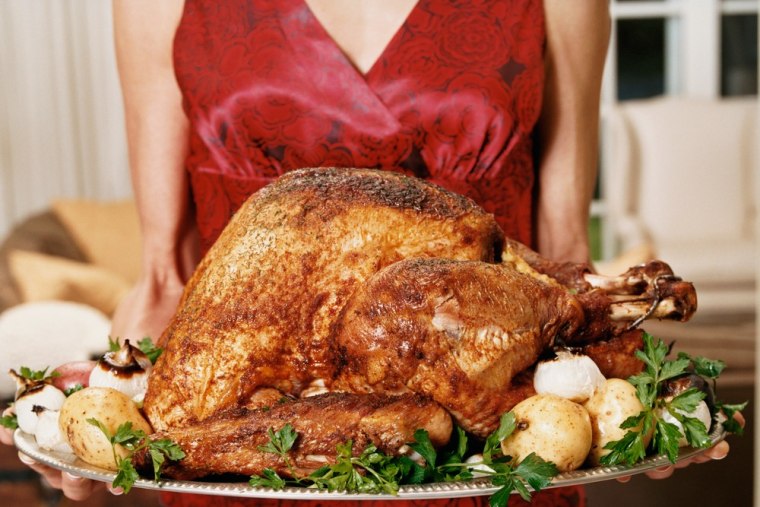Americans will be able to enjoy relatively cheap Thanksgiving turkeys this year, thanks to many retailers locking in their costs before a drought this year drove up U.S. feed prices.
And retailers are determined to keep prices for the traditional Thanksgiving main course as low as possible, even though sky-high corn prices have nearly doubled the cost of producing a pound of turkey meat this year.
Offering attractive prices for turkey can help retailers such as Wal-Mart Stores Inc and Supervalu Inc lure customers into their stores for other Thanksgiving staples such as turkey stuffing, cranberries and sweet potatoes, industry sources said.
"Like the rest of the industry, we're seeing an increase in the prices on turkeys," said Mike Siemienas, spokesman for Supervalu Inc, the third-largest U.S. grocery store operator. "We continue to work with suppliers to ensure we're getting the best price possible for our customers."
Retail prices for frozen turkeys have barely moved in recent weeks. Whole frozen turkeys were selling for $1.62 a lb in September, up from $1.57 a lb at the same time two years ago, according to the U.S. Department of Agriculture's Economic Research Service.
One reason for that is many producers' contractual prices with retailers were set this spring when feed was far cheaper as U.S. farmers began planting what looked like would be a record corn crop.
The expectations for a bumper autumn harvest evaporated as the worst drought in half a century devastated crops and sent corn and soybean prices to record highs this summer.
The impact of higher feed costs are beginning to show up at some supermarkets that did not lock in pre-drought prices.
A manager at Paulina Market in Chicago said the meat market recently increased the price of their fresh turkeys by about 50 cents a lb to $3.75 a lb.
At Casey's Market in a Chicago suburb, owner David Casey said his wholesale suppliers are quoting prices that are "up a couple ticks, about 5 percent."
The surge in grain prices were also making it more difficult for some producers to secure bank loans.
John Burkel, a turkey grower and processor in Minnesota, said the rising grain prices can make it difficult to obtain bank financing.
"I used to feed a turkey for 22 cents a lb, now it costs 45-50 cents," Burkel said. "When you go to the bank and say, 'I need a line of credit that's twice what I typically have,' they look at you and say, 'Are you out of your mind? How are you getting that back?'"
In 2011, the United States produced 5.79 billion lbs of turkey - a 7.4 percent drop from the 6.25 billion lbs produced in 2008, according to USDA data.
The nation consumed about 5.02 billion lbs of turkey in 2011 - 6.6 percent less than the 5.37 billion lbs in 2008.
Industrywide, farmers and processors say they have scaled back their flocks, and further production cuts are expected as grain prices remain high. September's egg set placements fell 6 percent from a year earlier, according to USDA data.
Jim Hertel, managing partner of Illinois-based food retail consultancy Willard Bishop, cautioned that even if turkey wholesale prices continue to rise savvy retailers will eat as much of the difference as possible.
"Smart retailers will be looking to absorb the costs they can, and spread any of the price increases across other categories that haven't been as hard hit," Hertel said.
More business news:
